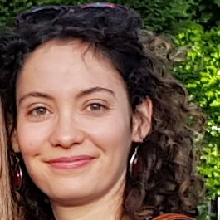Aurélie Coudert (IMPACT CRNL)
Aurélie Coudert (IMPACT CRNL)

Spatial hearing is a complex process that contributes to the construction of our perceptual space. Together with other sensory modalities, like vision, it provides a unified sensory experience. Its optimal functioning relies on the integrity of the auditory structures that pick up sounds in the periphery as well as central regions involved in their extraction and interpretation. Deafness interferes with these key stages of sound signal processing.
Technological innovation has transformed the management of severe to profound deafness thanks to the development of cochlear implants, but many questions remain including how to preserve and rehabilitate spatial hearing in cochlear implant users. The work presented in this PhD thesis focuses on these two aspects of sound localization.
In a first study, we evaluated 3D sound localization performance of children with bilateral cochlear implants and compared it with that of normal hearing children. In a second study, we validated a short French form of the pediatric questionnaire "Speech, Spatial, and Qualities of hearing". In a third study, we developed and tested the feasibility of a spatial hearing training protocol for bilateral cochlear implant adults.
These studies allowed us to better characterize spatial hearing skills in cochlear implant users. Patients had significant difficulties and there was considerable inter-individual variability. Despite this, the development of spatial hearing training to improve individual performance is a promising perspective for the future.
Key words: spatial hearing, cochlear implant, children, auditory maturation, spatial rehabilitation
Jury members :
Jacques LUAUTE, Président du jury
Paul AVAN, Rapporteur
Natacha TEISSIER, Rapporteure
Pascal BARONE, Examinateur
Anne CACLIN, Examinatrice
Eric TRUY, Directeur de thèse
Valérie GAVEAU, Co-directrice de thèse
Amphithéâtre bâtiment IDEE - Institut Des ÉpilepsiEs, 59 boulevard Pinel, 69500 Bron











